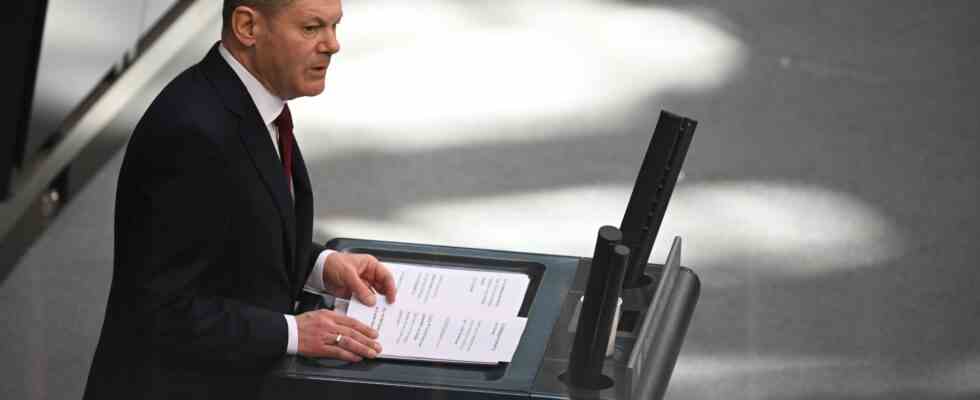Status: 03/02/2023 06:48 a.m
After Russia’s attack on Ukraine, Chancellor Scholz coined the term “turning point”. Today he is making a government statement on how German politics is doing a year later. What has changed this year?
Russia’s war against Ukraine has changed German politics – for SPD leader Saskia Esken personally too. “Foreign and security policy has not been my passion so far, but we all have to go through it now,” she said.
Suddenly, the Bundestag was concerned with supplying heavy weapons to Ukraine. To date, most of the SPD have been convinced that it is wrong to deliver rocket launchers or even tanks to a war zone. Belief in Russia as a partner was also shaken. “Of course, this war also means a paradigm shift for us in looking at the role of Russia in Europe and also our role in Europe,” said Esken.
Left emphasizes sticking to positions
The SPD has thrown old certainties overboard. The left, on the other hand, has stuck to its convictions, emphasizes party leader Janine Wissler. “We are rejecting the delivery of more and more and ever heavier weapons. We believe that continued rearmament is the wrong approach and say we must strengthen diplomatic initiatives to negotiate,” said Wissler.
But how peace can come about is something the left is arguing about. The camp around Sahra Wagenknecht wants the war to stop even if Russia occupies parts of Ukraine. Other leftists accuse her of not sufficiently demarcating herself to the right. Because the AfD does not want to deliver weapons to Ukraine either, some in the party even show solidarity with Russia.
Union emphasizes state political responsibility
While the left and the AfD oppose the government course, the Union sees itself in a different role in the opposition. CDU politician Thorsten Frei speaks of state political responsibility in times of crisis. “The classic conflict between the government and the opposition can then fade into the background at certain points,” he said. “We experienced that, for example, when we helped to change the constitution to get the 100 billion euro special fund for the German armed forces off the ground.”
The CDU and CSU want to be constructive but critical. Frei is annoyed that even less is being spent on defense this year – contrary to Chancellor Olaf Scholz’s promise. “He formulated high standards, which we applauded,” said Frei. “And after a year you have to say: a lot of it hasn’t been achieved. And we have to regret that, because he can’t expect any applause from our side.”
War superimposes coalition projects
The government parties must ensure the applause. But it was a difficult year for them too. SPD, Greens and FDP declared that they wanted to “dare more progress”: on social issues, on climate change, on digitalization. But the war overshadowed everything, regrets FDP politician Jens Teutrine. “There is a danger that politicians will only deal with the acute issues, i.e. manage the crisis mode.”
It’s important to him not to forget visions for the future, “that we mustn’t forget that we have important modernization projects. We have a huge backlog in the area of education, in digitization, in the transport infrastructure.” And Teutrine sees that as a challenge for politics one year after the turning point: not only to keep an eye on today’s crisis, but also on tomorrow’s problems.

